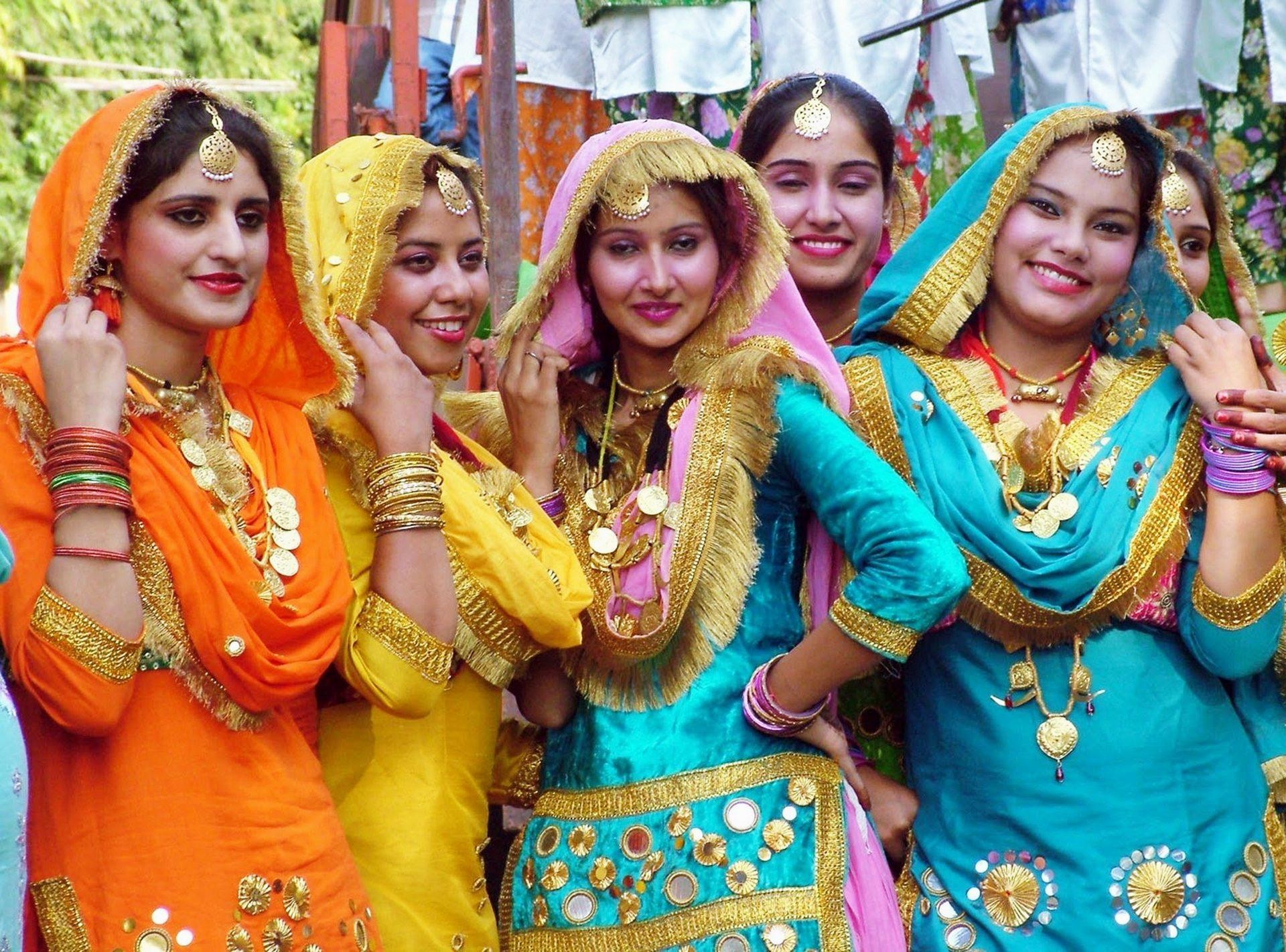Digital Privacy In Focus: Why Punjabi MMS Sex Raises Serious Concerns About Consent And Online Safety
The phrase "punjabi mms sex" often pops up in online searches, and it brings with it a whole lot of really serious questions about digital privacy, personal safety, and, you know, just basic human respect. It's a search term that, honestly, points to a rather troubling side of our digital lives, highlighting how private moments can sometimes become public without anyone's permission. We're talking about a situation where intimate images or videos, often shared in trust, are then spread around, causing a lot of hurt and, well, real harm to people. It's a big deal, and it's something we should all, arguably, be thinking about.
This kind of issue isn't just a minor thing; it really cuts deep into people's lives. It affects their reputation, their emotional well-being, and their sense of safety in the world, both online and offline. So, when we see terms like "punjabi mms sex," it's not about the content itself, but more about the bigger conversation we need to have around consent, the law, and how we treat each other in our digital spaces. It's a stark reminder that what happens online has very real, very human consequences, and that's something we, you know, really need to remember.
Our aim here is not to, like, discuss or promote anything harmful. Instead, we want to shed some light on the critical need for digital literacy and stronger privacy protections, especially for communities like the Punjabi people, who have such a rich and vibrant cultural background. We'll explore why these kinds of searches are a problem, what we can do to protect ourselves and others, and how we can foster a more respectful online environment for everyone. It's about empowering people with knowledge, actually, and making sure everyone understands their rights and responsibilities in this digital age.
Table of Contents
- Understanding the Digital Landscape: The Rise of Non-Consensual Sharing
- The Punjabi Identity and Digital Challenges
- The Gravity of Non-Consensual Intimate Imagery (NCII)
- Safeguarding Your Digital Footprint: Practical Steps for Online Safety
- Community and Education: Building a Safer Online Space
- Frequently Asked Questions About Online Privacy and Consent
Understanding the Digital Landscape: The Rise of Non-Consensual Sharing
In our increasingly connected world, sharing information, pictures, and videos has become a pretty normal part of daily life, you know. Yet, this ease of sharing also brings with it some rather serious risks, especially when it comes to private content. The phenomenon of non-consensual intimate imagery, or NCII, is a growing problem that affects people across all communities and backgrounds. It’s when someone's private, intimate images or videos are distributed without their explicit permission, and it's something that, honestly, causes immense distress. This isn't just about a lapse in judgment; it's often a deliberate act that violates trust and privacy, and that's a big deal.
The internet, while offering so many amazing ways to connect, also creates avenues for this kind of harmful behavior. Platforms like messaging apps and social media, which are meant for communication, can sometimes be misused for spreading private content. This can happen really fast, and once something is online, it's virtually impossible to completely remove it. The repercussions for victims are, in fact, long-lasting, affecting their mental health, relationships, and even their professional lives. It's a tough situation, to be honest, and it requires us to be more vigilant about our digital actions and the actions of others.
The Punjabi Identity and Digital Challenges
A Rich Cultural Tapestry
The Punjabi people, as a matter of fact, boast a truly rich and vibrant heritage, deeply rooted in history and tradition. Punjabi is, you know, the mother tongue of the Punjabi people, spoken by over 130 million individuals around the world. It stands as the tenth most commonly spoken language globally and is, actually, one of the most respected languages in South Asia. Its roots trace back to the Shauraseni language of medieval northern India, developing into a distinct language during the 11th century. There are, apparently, two main varieties of Punjabi, and it holds official status in Indian states like Punjab.
In India, Punjabi is typically written in the Gurmukhī script, which is the official standard. Though, you know, it's often unofficially written in Latin scripts too, which is interesting. The community itself is quite diverse; the majority of Punjabi Muslims, for instance, are Sunni, while a smaller group follows Shia Islam and other traditions, including the Ahmadiyya community. This rich cultural background, with its strong family values and community ties, often means that issues of honor and reputation are very, very important. This makes the impact of non-consensual sharing particularly devastating within Punjabi communities, as it can bring immense shame and distress, not just to the individual but to their whole family, too, it's almost.
Online Vulnerabilities and Misconceptions
Despite their strong cultural foundations, Punjabi communities, like many others, face unique challenges in the digital age. There can sometimes be, you know, a lack of widespread awareness about digital privacy rights and the legal protections available against online exploitation. This gap in knowledge can make individuals, especially younger people, more vulnerable to online predators or to the accidental sharing of private content. There's also the issue of misinformation and the ease with which rumors can spread online, which can be really damaging. So, it's not just about what people share, but also about how that content is, sort of, interpreted and used by others.
The term "punjabi mms sex" itself, in a way, often becomes a shorthand for a broader issue of online exploitation that affects various groups, but it unfairly attaches a negative connotation to an entire community. This is why it's so important to talk about digital literacy and critical thinking. We need to empower individuals within these communities to understand the risks, protect their privacy, and know how to respond if they, or someone they know, becomes a victim of non-consensual sharing. It's about building resilience and knowledge, you know, and fostering a safer online space for everyone who speaks Punjabi, whether in Pakistan, India, or among the 102 million migrants around the world who use it as their first language.
The Gravity of Non-Consensual Intimate Imagery (NCII)
Emotional and Psychological Impact
The harm caused by the non-consensual sharing of intimate images is, like, truly profound and far-reaching. Victims often experience a deep sense of betrayal, shame, and a complete loss of control over their own narrative. It can lead to severe anxiety, depression, and, in some cases, even thoughts of self-harm. The feeling of being exposed and violated can linger for years, affecting personal relationships, trust in others, and a person's overall sense of self-worth. It's a violation that, you know, really strips away a person's dignity, and that's a very, very heavy burden to carry.
For individuals from communities where reputation and family honor are highly valued, the impact is, arguably, even more devastating. The fear of social ostracization, the judgment from family members, and the potential for public humiliation can be overwhelming. This kind of online abuse isn't just a digital problem; it permeates every aspect of a person's life, creating a constant state of fear and vulnerability. It's a reminder that our digital actions have incredibly real, human consequences, and we need to treat online interactions with the same respect and care we would in person, actually.
Legal Repercussions and Protections
Thankfully, many countries are starting to recognize the serious nature of non-consensual intimate imagery and are putting laws in place to combat it. In India, for instance, laws like the Information Technology Act, 2000, and sections of the Indian Penal Code address cybercrime and the unauthorized sharing of private content. These laws aim to provide a framework for reporting, investigating, and prosecuting those who engage in such harmful acts. Similarly, in Pakistan, the Prevention of Electronic Crimes Act (PECA) 2016 makes it a criminal offense to share intimate images without consent. These legal measures are, like, really important for holding perpetrators accountable and offering some recourse for victims, you know.
It's crucial for everyone to understand these legal protections. Knowing your rights can empower you to take action if you or someone you know becomes a victim. Reporting such incidents to law enforcement is a vital step, as is seeking support from legal experts or victim advocacy groups. While the legal process can be challenging, it's an important pathway to justice and to sending a clear message that this kind of behavior will not be tolerated. So, if you're ever in this situation, remember there are, actually, avenues for help and justice available to you.
Safeguarding Your Digital Footprint: Practical Steps for Online Safety
Protecting your digital footprint is, like, pretty essential in today's online world, you know. It’s about being smart and proactive with your personal information. Here are some practical steps, actually, that can help you stay safer online and avoid becoming a victim of non-consensual sharing. These aren't just good ideas; they're pretty much necessary habits for anyone using the internet, to be honest.
Consent Is Key
- Always Get Explicit Permission: If you're ever thinking about sharing someone else's image or video, even if it seems harmless, always, always get their clear and explicit consent first. And, you know, that consent can be taken back at any time.
- Understand What Consent Means: Consent means a clear, enthusiastic, and ongoing agreement. It's not implied, and it's not a one-time thing. This is, like, really important to grasp, you know.
- Never Assume: Just because someone shared something with you privately doesn't mean they want it shared with anyone else. Always assume privacy unless told otherwise, in a way.
Strengthening Privacy Settings
- Review All Your Social Media Accounts: Take some time, you know, to go through the privacy settings on all your social media platforms. Make sure they are set to the highest level of privacy possible. This means limiting who can see your posts, photos, and personal information.
- Be Selective with Friend Requests: Only accept friend requests from people you actually know and trust. A lot of privacy breaches happen when strangers gain access to your private content.
- Use Strong, Unique Passwords: This might sound obvious, but it's, like, super important. Use complex passwords for all your accounts and consider using a password manager.
- Enable Two-Factor Authentication (2FA): This adds an extra layer of security to your accounts. It's a small step that can make a really big difference, actually.
Thinking Before You Share
- Consider the Long-Term Impact: Before you post anything online, just, you know, pause and think: "Could this potentially cause me problems down the line?" Once it's out there, it's very hard to take back, so, you know, be mindful.
- Be Cautious with Personal Information: Avoid sharing sensitive personal details like your address, phone number, or daily routines publicly. This kind of information can be misused, arguably.
- Educate Yourself and Others: Stay informed about the latest online scams and privacy threats. Share this knowledge with your friends and family, especially younger people. This is, like, pretty crucial for everyone's safety.
Recognizing and Reporting Abuse
- Know How to Report: Familiarize yourself with the reporting mechanisms on various social media platforms and messaging apps. Most have ways to report non-consensual content, actually.
- Contact Law Enforcement: If you or someone you know is a victim of non-consensual sharing, don't hesitate to contact local law enforcement. They can provide guidance and support.
- Seek Support: Reach out to trusted friends, family, or support organizations. You don't have to go through this alone. There are people who can help, you know.
Community and Education: Building a Safer Online Space
Building a safer online space, especially for communities like the Punjabi people, is, like, a collective effort, you know. It's not just about individual actions; it's about fostering a culture of respect, awareness, and support. Education plays a really, really vital role here. Teaching digital literacy from a young age, both in schools and at home, can empower individuals to make smarter choices online. This means understanding what privacy means, what consent looks like, and the potential dangers that lurk in the digital world, to be honest.
Community leaders, educators, and parents have a significant role to play in this. They can initiate conversations about online safety, share resources, and create safe spaces for people to discuss their concerns without fear of judgment. It’s about, you know, breaking the silence around these sensitive issues and making sure everyone feels comfortable seeking help if they need it. We should be, actually, celebrating the rich cultural heritage of the Punjabi language and its global community, which includes over 76 million native speakers in Pakistan and over 29 million in India, without letting harmful online practices overshadow it. Learn more about digital citizenship on our site, and link to this page for more online safety resources.
Furthermore, supporting organizations that work to combat cybercrime and provide assistance to victims is, like, pretty important. These groups often offer invaluable resources, from legal advice to psychological support. By working together, we can create a more resilient and protective online environment for everyone, where privacy is respected and harmful content is actively challenged. It's about ensuring that the digital world reflects the values of respect and dignity that are so important in our real-world communities, you know. You can find more information about online safety and reporting cybercrime from reputable sources like the Indian Cyber Crime Coordination Centre.
Frequently Asked Questions About Online Privacy and Consent
Here are some common questions people often have about staying safe online and understanding consent:
What should I do if my private images are shared without my permission?
If your private images are shared without your consent, the first thing to do is, like, try not to panic. You should, honestly, immediately document everything: take screenshots of the content, the platform it's on, and any usernames involved. Then, report the content to the platform where it's hosted; most social media and messaging apps have clear reporting mechanisms for non-consensual content. It's also really important to contact your local law enforcement or cybercrime unit, as this is often a criminal offense. Finally, seek support from trusted friends, family, or victim support organizations, because you don't have to go through this alone, you know.
How can I talk to my children about online safety and consent?
Talking to your children about online safety and consent is, like, pretty crucial. Start early, and keep the conversation ongoing and open. Emphasize that consent means clear, enthusiastic agreement, and that it applies to sharing photos and videos just as much as it does to physical interactions. Teach them about privacy settings, strong passwords, and the importance of thinking before they share anything online. Encourage them to come to you if they ever see something that makes them uncomfortable or if someone asks them to share something private. It's about creating a safe space for them to communicate, actually, and making sure they know you're there to help, no matter what.
Are there any legal protections against non-consensual image sharing?
Yes, there are, like, definitely legal protections in many places against non-consensual image sharing. For example, in India, the Information Technology Act and sections of the Indian Penal Code address cybercrime, including the unauthorized sharing of private content. Pakistan also has the Prevention of Electronic Crimes Act (PECA) 2016, which makes it a criminal offense. These laws aim to provide a framework for victims to seek justice and for perpetrators to be held accountable. It's really important to be aware of the laws in your specific region and to report any incidents to the authorities, as they can provide legal guidance and assistance, you know.
Addressing the complex issues around "punjabi mms sex" means focusing on education, digital literacy, and robust privacy measures. It's about empowering individuals and communities to navigate the online world safely and respectfully. By fostering a culture of consent and mutual respect, we can, actually, work towards a digital space where everyone feels secure and valued. It's a collective responsibility, you know, to protect privacy and uphold dignity for all.

Wallpaper Punjabi (74+ images)

Traditional Indian Punjabi Artwork Of A Punjabi Girl - vrogue.co

Indian punjabi girls stock photo. Image of model, outdoor - 21422638